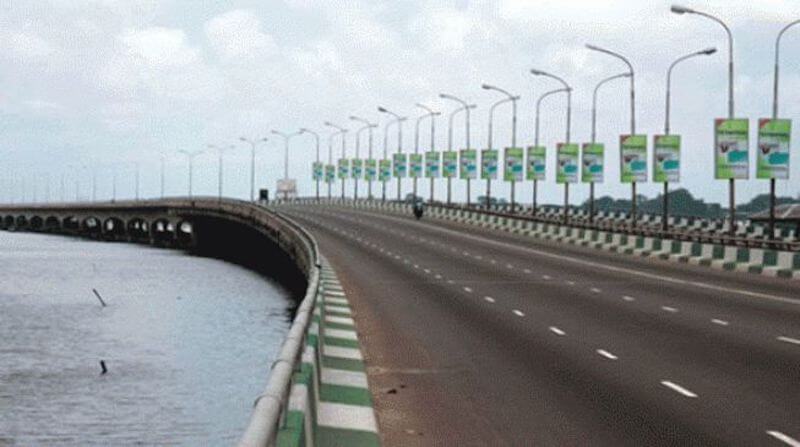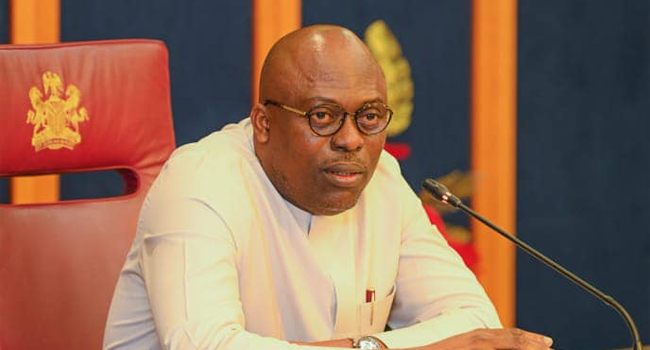By Babatunde Jose
“And do not kill yourselves, surely God is most Merciful to you.”
— (Quran 4:29)
The Lagoon beckons the distressed, the frustrated and the depressed. It calls on the down-in-the-dumps to come end it all and leave this unjust and unfair world; a world where the rich get richer and the poor get poorer, impoverished and immersed in want and perpetual debt. Taking stock of his lot in life, the depressed begins to contemplate checking out and ending it all. That is when the ‘Lagoon’ beckons and offers a final solution. But is it the solution?
For millions, the lagoon beckons; a metaphor for a call to commit. . . . It calls to the depressed, frustrated, distressed and dispirited who having lost all hope have gotten to their tethers’ end and would contemplate suicide as a final solution.
There are however, many other causative factors to the incidence of suicide and this would include the mental state of the person. There are many who are clinically depressed and are prone to suicidal instincts. People who take their own lives as a result of failed amorous affairs, family matters or even failure in expectations. Many are who leave notes while others just take the plunge to save face after a terrible emotional fiasco.
What has led to the spate of suicide in our clime? Why take one’s life? Why jump into the Lagoon? It is the culmination of the vagaries and vicissitudes of the time; economic hardship on a scale never experienced before and still getting worse. There is abject poverty in the land and it now walks about naked without any shame, let or hindrance. People are now picking food from the proverbial dustbin with careless abandon; and the rich are not excluded as many harbor their own problems; many are in debt and at the mercy of AMCON. The rich too are crying and many are not only distressed but depressed. The cheap money has stopped coming in; proceeds of corruption, graft, grand larceny and outright pen robbery. The banks have been knocking at their doors and they have nowhere to run. AMCON has become more radical in its approach at debt recovery and properties are being seized. Yet we are the biggest economy in Africa; this unfortunately is not reflected in the socio-economic wellbeing of our people because we practice a ‘witchcraft’ economy which records 2% growth without commensurate development. No light; we wallow in constant darkness, failed leadership and clueless followers; lopsided political structure and an unjust and inequitable authoritative allocation of values. Our revolution of rising expectations has become one of rising frustration. The ‘lagoon’ therefore beckons. Many have answered the call of the lagoon but are unsung and unknown. Many deaths are not natural and unreported. Many are buried without proper death certificate which is often procured for a fee. Records of death and cause of death are not properly kept, which is a sad commentary on the administration of birth and death in our country.
‘Echoes from the Lagoon’ is a play, written by late Rasheed Gbadamosi, which described the society at the time it was written. The play portrays a corrupt society and the presence of clan stratification, oppression and greed. The society has not changed from that time. Rather, it is now worse.
Low-income countries have the highest burden of suicide. Suicides are associated with psychopathologies such as depression and hopelessness. Poverty, scarcity and economic crisis are associated with psychopathologies. During economic crisis which cause problems in the banking sector and downturns in stock markets, bankruptcies, house repossessions and rises in unemployment and hopelessness, suicide become very rampant. Hopelessness is common in people living in slums, with young males under 30 at greater risk than any other group.
Most religions are against suicide and regard it as a sinful act.
According to the theology of the Roman Catholic Church, suicide is objectively a sin which violates the commandment “Thou shall not kill”. The Catholic Church used to deny suicides a Catholic funeral mass and burial. However, the Church has since changed this practice. The gravity and culpability for that sin changes based on the circumstances surrounding that sin. The Catechism of the Catholic Church, Paragraph 2283 states: “We should not despair of the eternal salvation of persons who have taken their own lives. By ways known to him alone, God can provide the opportunity for salutary repentance. The Church prays for persons who have taken their own lives.” Paragraph 2282 also points out that “Grave psychological disturbances, anguish, or grave fear of hardship, suffering, or torture can diminish the responsibility of the one committing suicide.”
The Orthodox Church shows compassion, however, on those who have taken their own life because of mental illness or severe emotional stress.
Studies have shown that suicide levels are highest among the retired, unemployed, impoverished, divorced, the childless, urbanites, empty nesters, and other people who live alone. Suicide rates also rise during times of economic uncertainty. (Although poverty is not a direct cause, it can contribute to the risk of suicide). People living in the most disadvantaged communities face the highest risk of dying by suicide.
A report, Dying from Inequality, Socioeconomic Disadvantage and Suicidal Behavior: SUMMARY REPORT 2017 showed that financial instability and poverty can increase suicide risk. Suicide is a major inequality issue. It was found that income and unmanageable debt, unemployment, poor housing conditions, and other socioeconomic factors all contribute to high suicide rates. Tackling inequality should be central to suicide prevention and support should be targeted to the poorest groups who are likely to need it most.
Every year close to 800 000 people take their own life and there are many more people who attempt suicide. Every suicide is a tragedy that affects families, communities and entire countries and has long-lasting effects on the people left behind. Suicide occurs throughout the lifespan and was the second leading cause of death among 15-29 year-olds globally in 2016.
Suicide is a global phenomenon in all regions of the world. In fact, over 79% of global suicides occurred in low- and middle-income countries in 2016.
Countries with higher levels of poverty have higher levels of pediatric and adolescent suicide, according to research presented at the American Academy of Pediatrics, National Conference & Exhibition. The rate of suicide by firearm also increased as poverty levels increased, researchers found.
Allah says: “take not life, which Allah hath made sacred, except by way of justice and law: Thus doth He command you, that ye may learn wisdom. (Quran 6:151); “Nor kill (or destroy) yourselves: For verily Allah hath been to you Most Merciful! (Quran 4:29).
There are two forms of suicide, the formal which involves the actual carrying out of the deed such as hanging, firearms, stabbing, electrocution, ingesting poison, self immolation, running under a moving train and jumping into the Lagoon. There is however a passive suicide which involves committing acts that might lead to death or doing those things which one ought not to do that might eventually leads to death such as starving oneself to death.
There is however an extreme form or ‘X-Suicide’ commonly referred to as mass suicide when a group of people simultaneously kill themselves. In March 1997, California’s 911 emergency line dispatchers got a call in Rancho Santa Fe in San Diego.
When police turned up at the location on March 26, they found the bodies of 39 people, all dressed identically and neatly tucked in their bunk beds, with plastic bags tied around their heads. All of them were members of the eccentric Heaven’s Gate cult.
The Movement For The Restoration Of The Ten Commandments Of God (MRTCG) in Kanungu, Uganda was a fringe Catholic group convinced that the world would come to an end when the millennium calendar began. However, when the world did not end as expected, followers began to doubt their leaders. So a second date for the ‘Judgment Day’ was announced: March 17. On March 17, 2000, some 300 followers — including 78 children – headed for a last celebration before salvation hit them. Instead, what happened was mass self-immolations and poisoning.
In the 1970s, the self-styled prophet Jim Jones established a “socialist utopia” community in Guyana named Jonestown. In November 1978, that Jonestown pretty much ended when the outside would discover the rotting bodies of 918 followers of People’s Temple. The Jonestown massacre is the greatest human-made tragedy in the history of the United States, topped only by the September 11 terrorist attack.
A Muslim is obligated to exercise patience at times of affliction and fight injustice to the best of his ability. He is not commanded to commit suicide to escape afflictions.
Barka Juma’at and a happy weekend
|
Parting Shot: The Corona virus portends a recipe for mass suicide on a scale never before contemplated if our leaders in this country do not, as a matter of urgency, put in place crowd control policies that would stem the spread of this epidemic. All contact religious activities should be suspended for now. If soccer loving Italians can place a ban on spectatorships at football matches; Saudi suspending Umra and probably Hajj if care is not taken; closure of schools in many countries and suspension of Juma’at services in Iran, we have no reason not to follow suit.
|


 News7 years ago
News7 years ago
 Featured7 years ago
Featured7 years ago
 Boss Picks7 years ago
Boss Picks7 years ago
 Headline7 years ago
Headline7 years ago
 Headline6 years ago
Headline6 years ago
 Headline6 years ago
Headline6 years ago
 Headline7 years ago
Headline7 years ago
 Headline6 years ago
Headline6 years ago




























